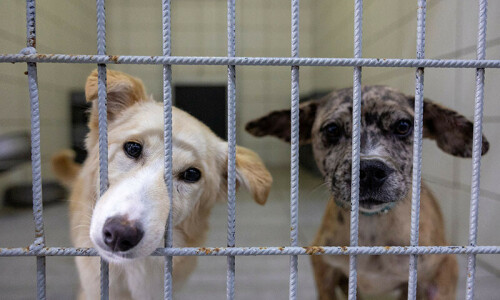AS the Afghan government and the Taliban sit down for parleys in Doha today, deadly violence in the country over the past few months has cast its shadow over the process. Since November, a number of officials, activists and journalists have been killed in targeted hits. This ugly trend is of course part of the overall cycle of violence that plagues Afghanistan, pitting the government against the Taliban and other militant groups such as the local branch of IS. Among the high-profile victims of the latest series of killings has been the deputy governor of Kabul as well as five journalists. Strangely, the Afghan peace process has been marked by the dichotomy of violence coupled with talk — with ceasefires often punctured by fighting. However, considering the complexity of the Afghan situation, particularly the bloodshed that has affected Afghan national life for decades, there is no other option but for the stakeholders to sit at the negotiating table and work out a doable peace plan. However, there must be some red lines, such as the protection of fundamental rights, specifically the safety of those that are critical of the government or armed groups.
Though no groups have claimed responsibility, it appears that the latest string of killings is an attempt by armed outfits to eliminate critical, independent voices, and send a message to others to keep quiet. As the government and the Taliban restart the dialogue process, Kabul should make it clear that such murderous attacks will not be tolerated. Afghan rights activists have expressed fears that there may be a rollback of rights and freedoms, particularly women’s rights, if a peace deal is reached with the Taliban. Of course, the era when the armed group ruled over the country was one where women became practically invisible on the national scene. It would be shameful if attempts were made to reimpose such restrictions on women. Indeed, reaching a workable peace deal will not be easy; an Afghan government negotiator has said, with reference to the Doha process, that talks will be “complicated and time-consuming”. However, all sides must realise that if this window of opportunity is lost, no one knows when the next chance will arise to end the deadly cycle of violence in Afghanistan. What is more, a final settlement must ensure equal rights for all of the country’s tribes and ethnic groups, as well as women and minorities.
Published in Dawn, January 5th, 2021










































Dear visitor, the comments section is undergoing an overhaul and will return soon.